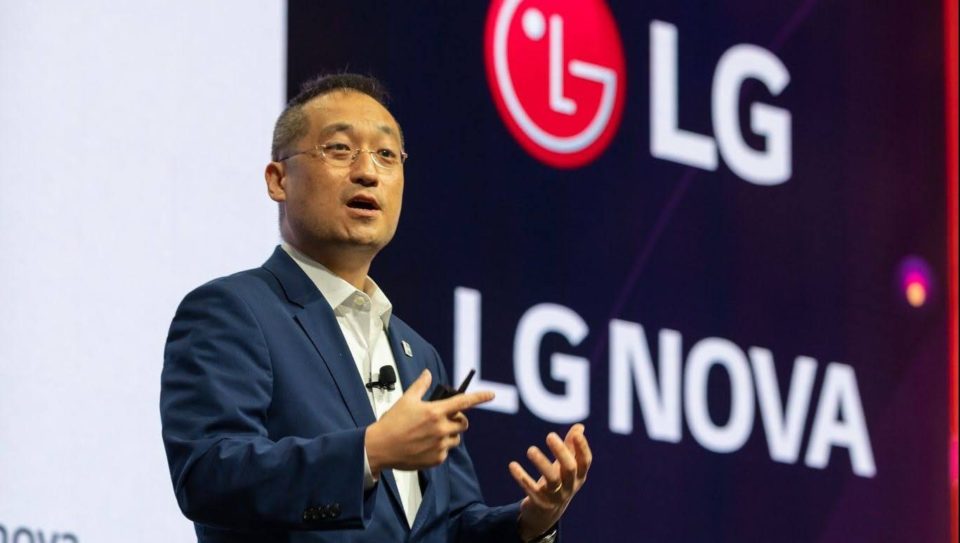Whatever you do, don’t call LG’s incubator program, LG Nova, a corporate venture capital (CVC) outfit.
LG Nova is the sharpest spearhead for LG, the company’s experimental playground to partner with startups to explore spaces where the company has discovered areas ripe for future growth. Backed by a relatively large – and fast-growing – team and a healthy budget, LG Nova is literally rolling up its proverbial sleeves and exploring versions of the future.
Below is my interview with Sokwoo Rhee, LG Corporate SVP and Head of North America Innovation Center – LG Nova among friends. The interview is edited for clarity and length.
“Are we a CVC? The answer is no. Hell no,” Rhee said. “CVC, as you know, is a venture capital game. Your ultimate goal is to generate a high return. Because of this, they invest in companies with the potential to increase market value. We’re not; We invest and while we care about the growth of businesses, we look much more at how the business we can build together will grow. But if there is potential to grow the business with us and if this company has something that we also need to grow our business, then we will invest and work with them. We conduct a Proof of Concept (POC) and put our resources behind the company. And investing is just part of it. We are much more interested in setting up joint ventures and joint ventures. For some companies, we may even make outright acquisitions. CVC is very much a financial game; We’re more of a business startup game.
“You’re probably tired of hearing about the metaverse every day,” Rhee laughs, eliciting an honest nod from your correspondent.
“LG Electronics is one of the largest manufacturers of devices and so on. We’re doing very well and we want to look to the future, particularly in areas that we believe are ripe for future growth, areas where LG isn’t necessarily present today. LG Nova is for areas where LG wants to grow but we’re not yet. Last year we set up this center to find out what these things are and to build new businesses in the new future growth areas.”
The team identified five distinct focus areas that explicitly targeted aspects of the market where LG can leverage its platform and ecosystem strengths while expanding its innovation reach. The areas are Digital Health, Metaverse, EV Infrastructure and “Smart Lifestyle”. The latter is an extension of smart homes, home automation and smarter living through the power of technology. Additionally, LG Nova highlights an overarching mandate to consider representation across all categories it serves.
“We look for things like supporting underserved communities, as well as products and services that can make an impact in communities to improve the quality of life,” Rhee explained. “Corporate innovation has come before, but a lot of it started internally. They take up many R&D centers and innovation initiatives and spend a lot of time internally in the lab to create something new and innovate within existing structures. We look at it from a completely different perspective – we do what we call outside-in innovation. LG Nova doesn’t have R&D capabilities and it’s done on purpose. We have some engineers, but we will not innovate completely from scratch internally. Instead, we would like to encourage outside companies – startups, etc. – to propose ideas and collaborate with LG Electronics in this new future growth area. We want to find out how we can build new companies together.
“When I say new companies, it can mean many different things. We are ready to start a new business unit if the idea, proposals and partnership are successful.
So far, that sounds like any other business incubator. Still, the devil is in the details, and LG Nova brings many exciting twists to enterprise accelerator mixes. The implementation of how it works with its startups is far broader than the “write a check and hope for the best” and “here’s some customers, good luck” approach that many of the other companies take.
On stage at the announcement of the launch of LG Nova — Sokwoo Rhee, Corporate SVP of LG and Head of LG Nova. (Image: LG Nova)
The process and the benefits
LG Nova has started to gain a foothold, beginning a funneling process it calls the Grand Challenge program. It all started with a competition called “Mission for the Future”, which started in September and which met with great interest among startups; The LG team tells me they received over 1,300 suggestions from more than 100 countries.
LG Nova differs from many other incubators in that it does not take the corporate venture capital approach of investing, nor does it look for technology proposals. Instead, the incubator is looking for submissions on how startups plan to bring their products to market by leveraging the reach and impact of LG Electronics.
From the 1,300 suggestions, they create a shortlist of around 50 companies. At this point, each of the companies will be assigned an Entrepreneur-in-Residence (EIR) who will work with the startups to flesh out the ideas and put together a proposal to explore potential synergies with LG’s overall strategy and the strengths and opportunities that startups bring with them.
